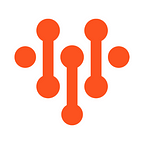Big data in health-care is projected to grow faster than in sectors such as manufacturing, financial services or media. In addition, big data in the global health-care market is expected to reach $34.27 billion by 2022 at a CAGR of 22.07%. But what is big data exactly, how can it help health-care, and what are the problems associated with health-care that need to be overcome?
Big data refers to vast quantities of data that are too large or complex for traditional technology to adequately scrutinize. Thankfully, new technologies that consolidate and analyze such data in order to discover and predict trends have since been created. For instance, within the domain of health-care, the more information a practitioner has, the more complete is their view of a patient, so that a more precise and personalized treatment can be delivered. What this basically means is that, as health tech grows rapidly, comparative analysis of robust patient data will allow medical practitioners to determine how a particular patient will respond to a specific treatment, or pinpoint patients at risk before health issues arise. This health data is derived by tracking individual patients who own wearable devices. Now that patient vitals and statistics such as heart rates, sleep habits, blood pressure and glucose levels can all be tracked, investigated and monitored, the ultimate goal going forward is to better administer self-care. This will, in return, lower the number of people admitted into hospitals and decrease health costs for the overall population.
An Abundance of Data
With all the apparent benefits of big data in health-care, there seems to be a disconnect between what big data can provide and what it is currently providing. The crux of the issue is the critical fragmentation of health-care systems, public health systems, health research systems and professional education systems. According to a report on Global Health Care Outlook by Deloitte, a “lack of interoperability among devices currently limits big data’s promise and, by extension, overall wellness and prevention initiatives. Interoperability has the potential to decrease costs and improve care coordination. With the advent of more open systems, data sharing should improve and analytics use increase.” As we can see, what is needed is a comprehensive, cohesive and interconnected ecosystem that provides greater value for both providers and patients. The goal is to create an environment that encourages innovation and leverages functionality and data that already exists in legacy health IT systems.
Fortunately, Playpal has developed a health platform that will revolutionize the way people manage and benefit from their investments in their health capital. The platform aggregates data from all kinds of health databases to give individuals insights on their health data. These insights can help health stakeholders, like insurers and pharmacy chains, develop a deep understanding of their customers. An insurer could, for instance, predict changes in customers’ needs and preferences based on life events and proactively approach them with tailored offerings.
It is clear that using big data can help the health-care industry provide more efficient operations and insights into patients’ health. By creating a decentralized data repository for the device market and ensuring interoperability, integration, correlation, standardization and normalization of health information, Playpal does exactly that.
